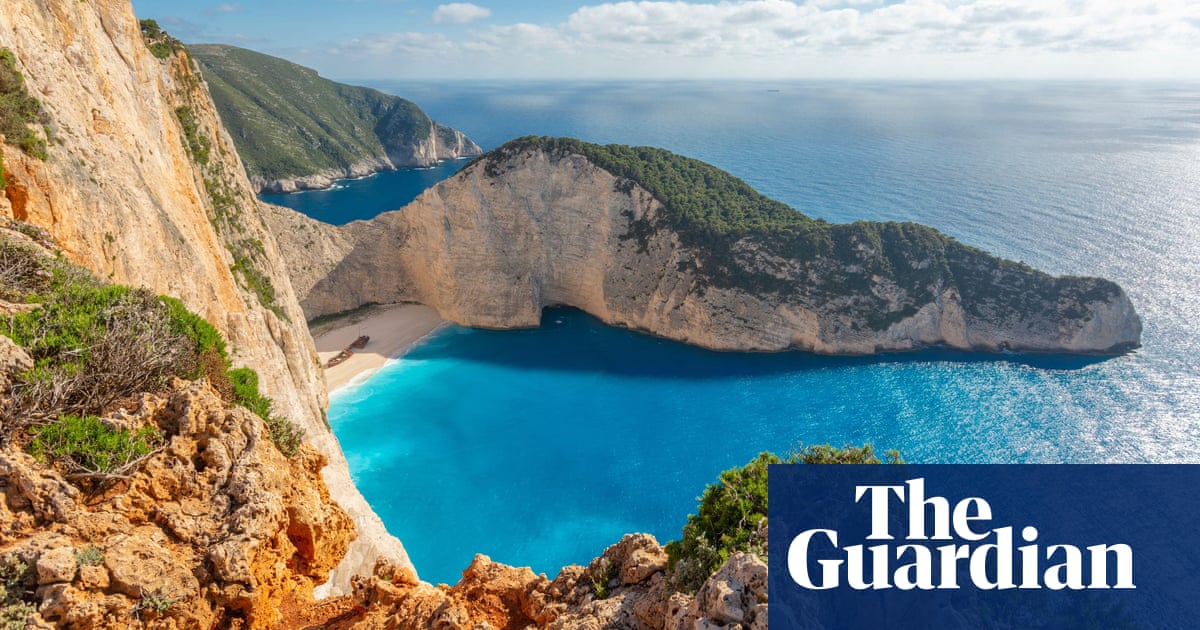
Greece has become the first country in Europe to announce a ban on bottom trawling in all of its national marine parks and protected areas.
The country said will spend €780m (£666m) to protect its “diverse and unique marine ecosystems”.
The Greek prime minister, Kyriakos Mitsotakis, told delegates at the Our Ocean conference in Athens on Tuesday: “We’ve established two additional marine national parks, one in the Ionian and one in the Aegean, increasing the size of our marine protected areas by 80% and covering one third of our marine territorial waters.
“We will ban bottom trawling in our national parks by 2026 and in all marine protected areas by 2030.”
He said he would also establish a state-of-the-art surveillance system, including drones, to enforce the ban.
The proposed Ionian marine national park will cover almost 12% of Greek territorial waters, safeguarding sea mammals like sperm whales, striped dolphins and the vulnerable Mediterranean monk seal and the South Aegean MPA, which covers 6.61% of Greek territorial waters.
However, the Athens government’s decision to go ahead with two new marine parks in the Aegean and Ionian has stirred up tensions with its historical rival Turkey. Ankara’s foreign ministry warned Greece last week that the proposal in the Aegean lay in a disputed area and that the initiative was “politically motivated”.
Conservationists welcomed the announcement and said they hoped the move would create a “domino effect” for other EU countries to do the same.
Nicholas Fournier, the campaign director for marine protection at the international conservation group Oceana, said: “Everyone was expecting France or Germany or Spain to step up. The fact that Greece is championing this ban on bottom trawling is surprising but very welcome.
“We hope this creates a domino effect on other European countries to do the same. The pressure is on France, as it hosts the UN oceans conference next year.”
The news came as France was accused of hypocrisy by conservationists over a post-Brexit dispute with the UK over fishing rights. The country launched an official protest after the UK moved to ban bottom trawling from parts of its territorial waters to protect vulnerable marine habitats.
Charles Clover, the co-founder of Blue Marine Foundation, a UK-based conservation organisation, said: “The grownups of Europe really do need to sort out the extraordinary chaos between its member states over marine protection. France claims to have already protected 30% of its waters – while their own conservationists tell us less than 0.1% of its waters are effectively protected from trawling.
“On top of that, France wants to prevent Britain banning trawling in marine protected areas in the UK’s own waters – which is utter hypocrisy, contrary to habitats laws that apply to both of us and unacceptable to the UK. Today we have Greece leading Europe by announcing that it will actually protect all of its MPAs from trawling by 2030, which amounts to a huge 32% of its waters. Has the EU no common standards?”
Bottom trawling by industrial vessels is a hugely damaging fishing technique that drags heavy nets across the seabed, destroying habitats and releasing carbon into the sea and the atmosphere.
Oceana – along with other NGOs, the Marine Conservation Society and Seas at Risk – has urged the EU to take tougher action against members that still allow bottom trawling in their marine protected areas. A report in March showed that the destructive practice is still happening in 90% of all offshore MPAs in the EU.
At the moment, just 7-8% of the ocean is protected, and only 3% falls under the “highly protected” category.












